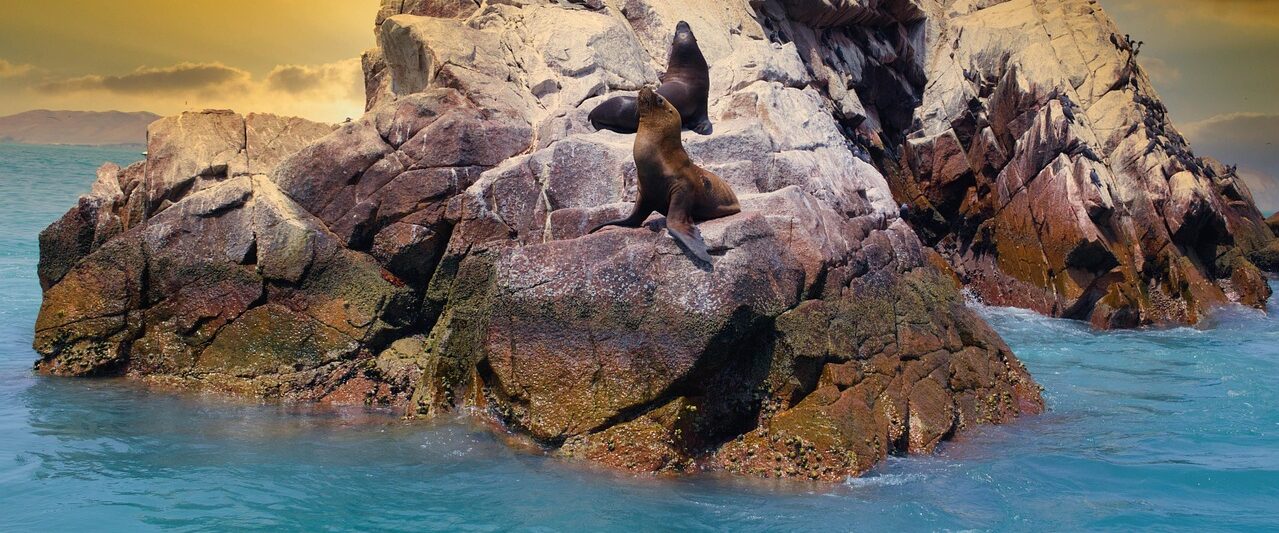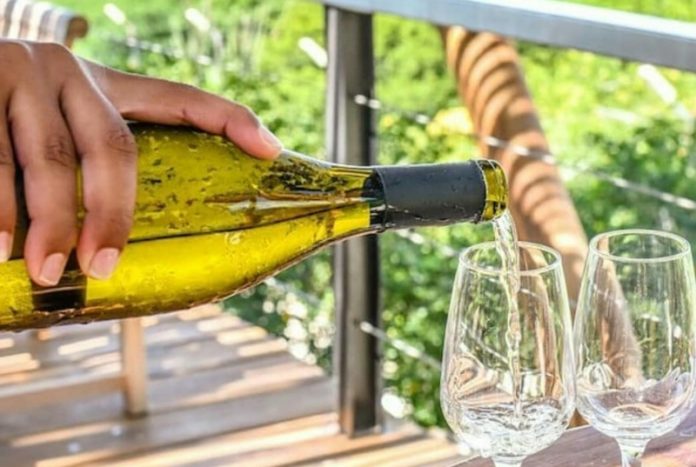The Caribbean conjures images of turquoise waters, sugar-white sands, steel drums, and rum-laced cocktails.
But wine?
Peel back the layers of these sun-kissed isles, and you’ll discover that wine—not just rum—is finding its place among the palms. A burgeoning wine scene is quietly making waves across islands like Aruba, the U.S. Virgin Islands, Puerto Rico, and Curaçao.
From adventurous importers and boutique vineyards to restaurants with world-class cellars, the Caribbean is pouring a unique blend of global grapes, island attitude, and sun-drenched hospitality.
Let’s take a delicious journey through these four islands, where Old World vines meet New World vibes.
Aruba: A Desert Island with a Taste for Elegance
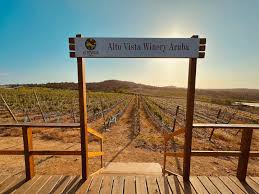
Aruba may be better known for its cactus-dotted terrain and steady trade winds than for sprawling vineyards, but this Dutch Caribbean gem has cultivated a refined taste for wine that surprises many first-time visitors.
The island isn’t ideal for growing grapes, with a dry climate and minimal rainfall, but it makes up for that with serious import savvy and an appetite for the finer things.
Aruba’s wine scene thrives through its restaurants and wine boutiques. One standout is The Wine Room Aruba in Oranjestad, a cozy lounge where sommeliers serve up flights of global wines alongside artisan tapas.
What sets Aruba apart is its celebration of diversity: you’ll find vintages from South Africa, Spain, Argentina, and even boutique European producers not widely available elsewhere in the Caribbean.
Some wine merchants here also collaborate with small-batch producers to create private-label house wines. These custom blends, often labeled with Dutch-Caribbean themes or local landmarks, are served in upscale resorts and sought after by collectors.
A tip for wine lovers: time your visit with Aruba Wine, Food & Art Festival, an annual event that blends culinary flair with visual arts and of course—plenty of sipping under the stars.
U.S. Virgin Islands: Wine in the Wake of Pirates and Plantations
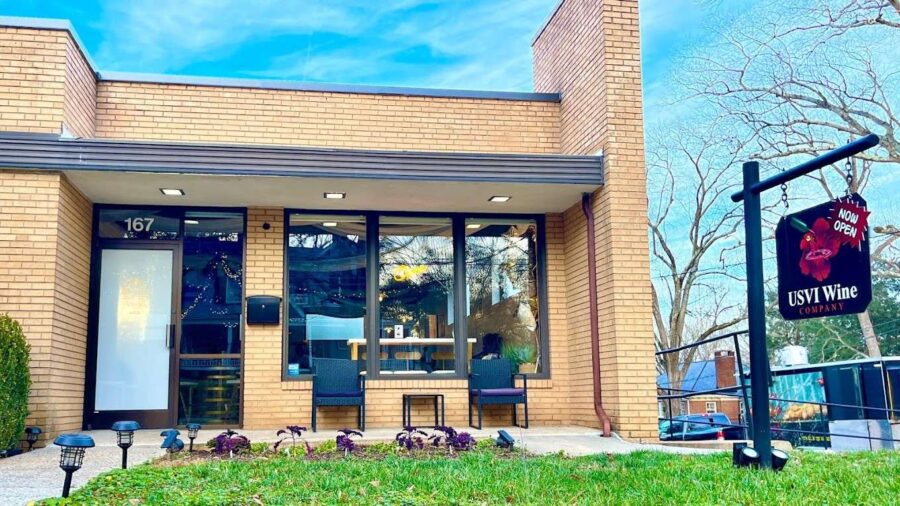
The U.S. Virgin Islands—especially St. Thomas and St. John—have a rich colonial history that includes plantations, pirates, and sugarcane. While rum still dominates the islands’ distilling scene, the love of wine has found fertile ground among its residents and visitors.
Though grape growing here is rare, wine appreciation thrives in the territory’s upscale dining culture. The Wine Shop in St. Thomas is a local institution with one of the largest selections in the Eastern Caribbean. Pair your bottle with a sea view at Old Stone Farmhouse, a historic estate restaurant that curates its wine list with Mediterranean flair.
But what’s truly unique about the U.S. Virgin Islands is the presence of experimental micro-vineyards. On the quieter island of St. John, local winemaking enthusiasts have started cultivating hybrid grape varieties suited for tropical climates—like Blanc du Bois and Black Spanish, which are disease-resistant and heat-tolerant.
These pilot vineyards are still small-scale and largely educational, but they represent a shift toward sustainable viticulture in the Caribbean. With the growing interest in climate-resilient agriculture, the Virgin Islands may soon find themselves pioneering tropical terroir.
Puerto Rico: From Colonial Roots to Contemporary Palates
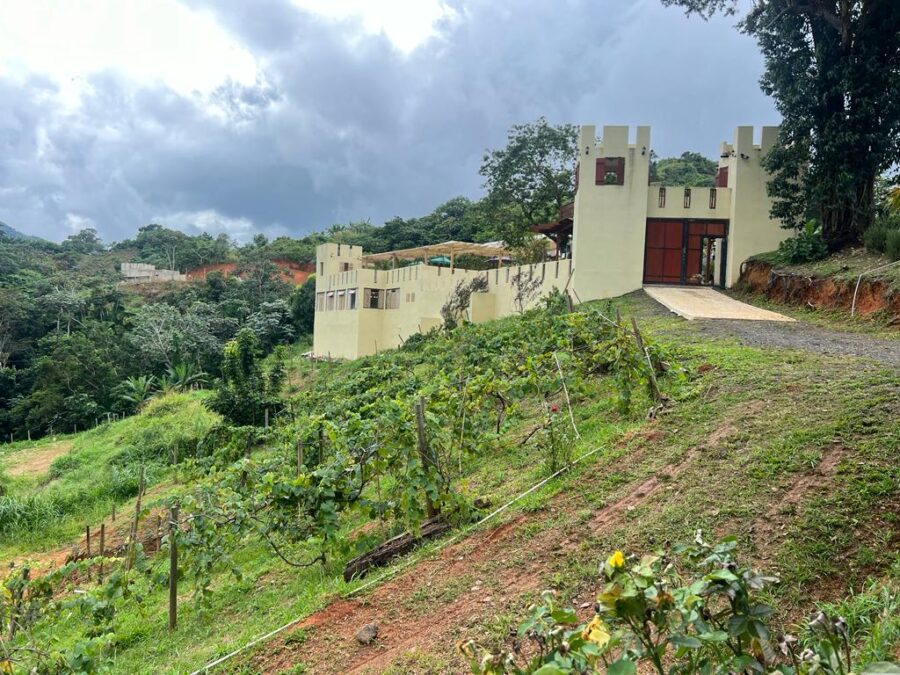
Puerto Rico, with its rich Spanish colonial heritage, has always maintained a deep connection to wine. Even during the era of Spanish galleons, wine was shipped from Iberia to the island as a staple of aristocratic life and Catholic ritual. That legacy endures—but it’s evolving into something fresher and more vibrant.
Today, Puerto Rico’s wine culture is experiencing a renaissance. In San Juan, the capital, wine bars like La Enoteca de Ballester Hermanos and Al Fresco Wine Bar cater to a booming urban crowd with curated flights and tapas.
But the real surprise lies in the mountain countryside.
Finca Vista Bella
High in the lush, misty mountains of Utuado, where the air is cooler and the views are cinematic, a dream took root—quite literally. Finca Vista Bella, a family-owned haven nestled in the heart of Puerto Rico’s central highlands, is rewriting the island’s agricultural story one vine at a time.
Puerto Rico’s fertile soil and tropical climate are a paradise for mangoes, bananas, and coffee, but grapes are a more ambitious undertaking. But ambition is exactly what defines this place.
The owners of Finca Vista Bella created a vineyard where few would dare. Grapevines, notoriously picky about their conditions, don’t typically thrive in tropical weather.
In the Path of Devastating Storms
In the wake of Hurricane Maria—an event that devastated much of the island—the family discovered something remarkable: a handful of grape varieties not only survived the storm, they thrived. These resilient vines became the cornerstone of the winery.
Today, the farm is a vibrant mosaic of grapevines and tropical fruit trees, buzzing with life and layered with purpose. Here, tradition and innovation coexist. The vineyard produces an array of handcrafted wines under the label Château d’Amelia. Every bottle is made on-site, combining the flavors of homegrown grapes with imported varieties from around the world.
A blend of island soul and sophistication.
But Finca Vista Bella isn’t just about the wine—it’s about the experience. Visitors are treated to panoramic views of Puerto Rico’s mountainous interior, a landscape that lives up to the farm’s name—”Beautiful View”—in every direction.
The atmosphere is welcoming, the wine pours are generous, and the sense of connection—to the land, to the craft—is unmistakable.
Island Wine Movement
Puerto Rico’s wine movement is supported by a culinary revolution as well. With a rise in farm-to-table dining, local chefs are pairing inventive island dishes like mofongo and lechón asado with surprising wine counterparts—think a chilled Albariño to complement garlic-heavy dishes or a spicy Malbec for roasted pork.
Curaçao: Dutch Roots and a Passion for Pairing
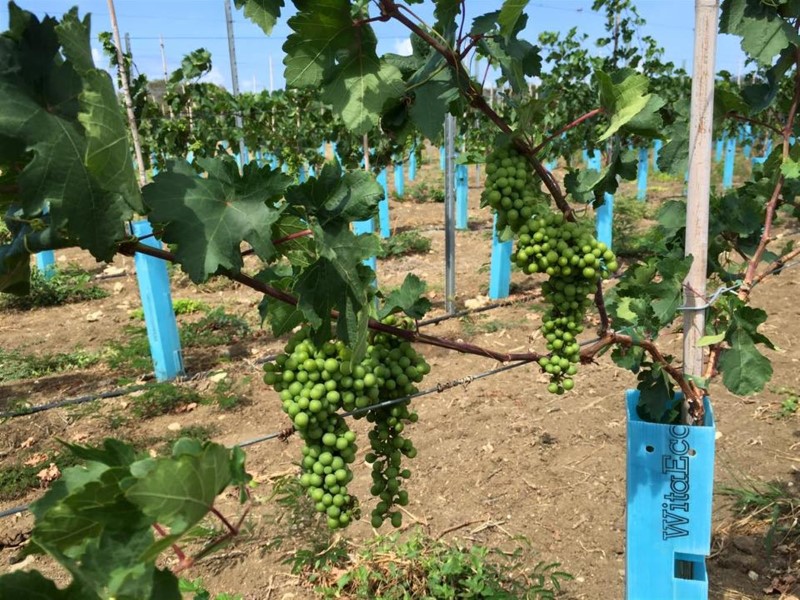
Curaçao is the canvas-colored Caribbean island where Dutch heritage collides with vibrant Afro-Caribbean culture—and wine is most definitely on the menu. Though Curaçao doesn’t have vineyards (the arid climate makes that difficult), it boasts a sophisticated wine scene anchored in its European ties.
In Willemstad, the capital, The Wine Cellar is a local legend. This family-run fine dining restaurant boasts an award-winning wine list with over 400 labels from France, Italy, Chile, and beyond. From buttery Chardonnays to crisp Sauvignon Blancs, unique wines are paired with European-Caribbean fusion dishes like red snapper in saffron sauce and filet mignon with truffle oil.
Curaçao also hosts La Vie en Rose, an annual rosé-themed event that draws wine lovers from across the Caribbean. Think pink everything: rosé wines, pink décor, and pastel clothing, all under the stars at a colonial plantation house. It’s a perfect expression of the island’s flair and festive spirit.
Another unique angle? Curaçao’s focus on education. Wine appreciation classes and sommelier-led tastings are increasingly popular among locals and tourists alike.
This isn’t just about sipping—it’s about savoring knowledge.
Caribbean Wine Culture: A New Terroir of Taste
While none of these islands are traditional wine-producing powerhouses, their growing passion for the grape is reshaping expectations. Importers are becoming storytellers, sommeliers are educators, and chefs are artists crafting unforgettable pairings.
Climate change and technological advances may also play a role in the future of Caribbean viticulture. Researchers are exploring whether certain hybrid grapes can thrive in tropical conditions, and with controlled-environment agriculture (CEA) and hydroponics on the rise, it’s not unthinkable that Caribbean-grown grapes could make their way into bottles in the next decade.
In the meantime, the Caribbean wine scene is more about lifestyle and culture than terroir. Here, wine is not just a drink—it’s an invitation to slow down, savor, and connect. Whether you’re watching the sunset with a chilled glass of Chardonnay in Aruba, exploring fruit wines in Puerto Rico, or swirling a red at a candlelit dinner in Curaçao, each sip becomes a sensory souvenir.
The Caribbean islands are rewriting the wine map, one glass at a time.
[ This article may contain links that provide the website with a small commission. ]

R. R. Fletcher
Rhonda is an accomplished writer and published author. She is a zoologist, articulate hodophile, and dedicated journalist focused on cultural exploration, wildlife expeditions, ancient discoveries, and sustainable travel. Follow her travels on X – @rr_fletcher.
